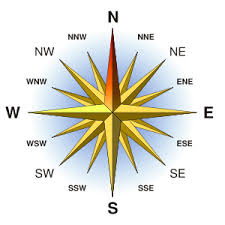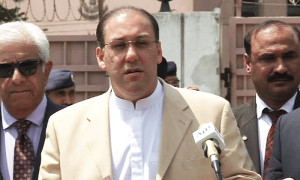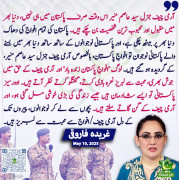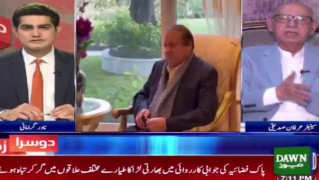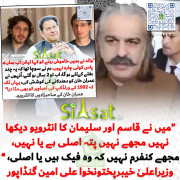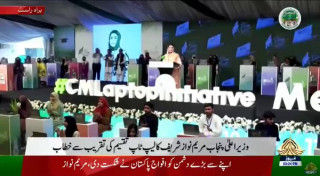ZIYARAH OF HOLY PROPHET (SAW) IN THE LIGHT OF QURAN & SUNNAH :-
In Islam, the practice of Ziyarah has a great significance as Quran in Surah Nissa 4: 64 says to Muslims who have done some unjust or sinns
when they were unjust to themselves, come to you (Holy Prophet (saw)) and asked forgiveness of Allah and the Messenger (saw) had (also) asked forgiveness for them, they would have found Allah Oft-returning (to mercy), Merciful.
Here comes the importance of Visiting someone who is dear to Allah. No doubt Allah is the one who gives forgiveness and mercy, but in this part of Quran, the unjust and sinner Muslims are directed to come to Holy Prophet (saw), and Holy Prophet (saw) would also ask to Allah to forgive that sinner (Recommendation or Intermediatoin), then the sinner would have found Allah oft-returning to mercy, The Merciful.
Since the whole Quran is perpatual, its teachings are also perpatual, this verse DOES NOT referes only to life of Holy Prophet (saw) rather its also valid for the rest of ages… for details please see the references :-
1..Ibn-e-Kathir tafseer-ul-quran, 1 : 519-520
2.. Behaqui Shob-ul-Iman, 3: 495-496
3.. Qurtabi, Al-jame-ul-Ahkam-ul-Quran, 5:265
Imam ibn-e-Qayyam (ra) in his ” Qaseed-tun-Nuniya” describes the virtues of Visitng Prophet’s (saw) grave:-
فکأنه فی القبر حيّ ناطق
فالواقفون نواکس الأذقان
Keep in mind & heart that Holy Prophet (saw) is alive in his grave and talks
So keep your head down when you stand in the court of Holy Prophet (saw).
PRACTICE OF HOLY PROPHET (SAW) TO VISIT GRAVES :-
Ibrahim bin Muhammad (ra) reported that Holy Prophet used to visit the graves of martyers of Ohud War in the beginning of year and said : السَّلاَمُ عَلَيْکُمْ بِمَا صَبَرْتُمْ فَنِعْمَ عُقْبَي الدَّارِ.
Salaam on you ! As a result of your patience, what a nice place you got in Akhirah
Abu Bakr, Umar and Usman (ra) also used to visit in the same way.
ref :-
1.. Abdur Razzaq al-musnaf : 3:573
2.. Aini , Umdat-ul-Qari, 8:70
3.. Tabri, Jami Al-Quran, 13:142
4.. Imam Suyuti, Dur-ul-Mansoor, 4:641
5.. Ibn-e-Kathir, tafseer-ul-Quran-ul-Azeem,
After Having made clear from Quranic Verse, lets see this subject in the light of Hadith :-
Holy Prophet (saw) said: “Do Visit the graves because this practice reminds the aakhirah (life hereafter)
ref:
1.. Muslim 2:671..976
2.. Haakim al-mustadrak: 1:531..1390
Blessings of Visiting Holy Prophet (saw)’s grave :-
Holy Prophet (saw) said : The one who Visits my grave, My intercession (Shifa’ah) is due for him (Essentially the visitor will get Shifa’ah) of the Holy Prophet (saw) on the day of judgement)
ref :
1. (Dar Qutni, Al-Sunnan 2: 278)
2. (Behaqui, Shohb-ul-Imaan 3: 490, and 4159 and 4160)
3. (Hakeem Tirmazi, Nawadirul Usool, 2 : 67)
ZIYARAH OF OTHER PIOUS MUSLIMS IN THE LIGHT OF QURAN & SUNNAH :-
Holy Quran In Sura Al-Kahf 18, in Verse 60 – 82, describes the event of Prophet Moses (Musa) (AS) when Allah (swt) ordered Moses to visit a Wali-Allah (Friend of Allah) Khidhar (AS) to seek knowledge and wisdome and Moses along with his servant, went in search of Khidhar.
We should remember that each Prophet’s practice is his sunnah and Prophet’s sunnah is always admissible, permissible and rightful in the eyes of Allah (swt) thats why Allah made it part of Quran.
(Note: the details can be read from Quranic translation of Sura Al-Kahf (The cave) verse 60 to 82).
Now Lets see the legitimacy in the light of Hadith :-
Hadith 1 -
Holy Prophet (saw) said in a Hadith Qudsi that Allah (swt) says “My Love is due for the people who Love each other only for the sake of My Love, Who sit close to each other only for my sake, Who go & meet each other only for My Willingness (Radha) and Who spend the money only for my Willingness “
ref:
1. Imam Al-Malik, Al-Mo’ta 2: 953 : 1711
2. Imam Ahmed bin Hanbal, Al-Musnad : 5: 233 : 22083
Hadith 2 -
Holy Prophet (saw) said : The one who visited his parent’s grave (both or single) on Friday, he is forgiven (by Allah) and his name is mentioned in the list of righteous and pious people.
ref :
1.. Al-Tabrani, Mojam-ul-Ausat 6:185
2.. Behaqui , Shob-ul-Imaan : 6:201
3.. Suyooti, Durr-ul-Mansoor : 5:267
VISITING GRAVES PRACTICED BY HOLY PROPHET (SAW) & SEHABA (RA)
PRACTICE OF HOLY PROPHET (SAW) :-
Muhammad bin Ibrahim (ra) reported : Holy Prophet (saw) used to visit the graves of martyers of Ohud, in the beginning of every year, and He used to say : السَّلاَمُ عَلَيْکُمْ بِمَا صَبَرْتُمْ فَنِعْمَ عُقْبَي الدَّارِ
and Abu Bakr, Umar and Usman also used to practice like this.
ref:
1.. Abdur Razzaq al-musnaf, 3:573
2.. Aini, umdat-ul-Qadri, 8:70
3.. Tabri Jam-ul-Bayan, 13:142
4.. Imam Suyuti, Durru-ul-mansoor, 4:641
Practice of Umar-e-Farooq (ra) :-
When Ka’ab Al-Ahbar accepted Islam, he was offered by great Sehabi & Ameer-ul-Momineen Hazrat Umar (RA) to visit the grave of Holy Propeht (saw). Ka’ab Al-Ahbar agreed and both visited the grave of Holy Prophet (saw), paid SALAM and then to grave of Hazrat Abu-Bakar Siddique (ra) and paid SALAM. Moreover the both performed 2 Rakah Nafl.
ref :-
1.. Waqdi, Futu-ush-Sham : 1:244
2… Hathmi, Al-johar Al-Munzam 27 . 28
Practice of Sayyeda Ayesha Siddiqua (ra).. She says ..
When the Holy Prophet (saw) and my father Abu-Bakr’s graves were in my House, I used to visit the graves without shaal (Hijaab) because they were my Husband & father. But when Umar (ra) was burried there, I swear, I never entered there without Hijaab because of Haya (modesty).
ref:
1.. Ahmad bin Hanbal, Al-musnad 6: 202
2.. Haakim, Al-mustadrak, 3:61 .. 4402
Important point : ARE THE ALL DEAD EQUAL ????
No, all dead people are not equal in the light of Quran & Sunnah
There are some beloved people of Allah (swt) who have sacrified their whole lives for the sake of Allah Almighty and they are blessed with another type of life which our minds cannot conceive …
as Quran says for the martyerd ..
“Do not even think they are dead, rather they are alive, they are given food by Allah, (Aal-Imran 3 : 169 )”
As we also see of practice and faith of Sehaba karam in the above Traditions, its clear that ..
The salam can not be said to dead people. Its only said to the one who can listens it. Neither the Hijaab can be made from dead people because Hijaab is only essential for a Na-Mehram who can see a Muslim Lady. Above practice of Umm-ul-momineen Ayesha Siddiqua (ra) expresses her views and faith that Umar was not dead like others rather he was able to see and listen even in grave.
In the light of above Quranic and Hadith fact, this misunderstanding should be removed from our minds that all the people are equal in the eyes of Allah Almighty because here Allah (swt) Himself has given a superior and higher kind of life after death to those who are killed in the way of Allah (swt).


